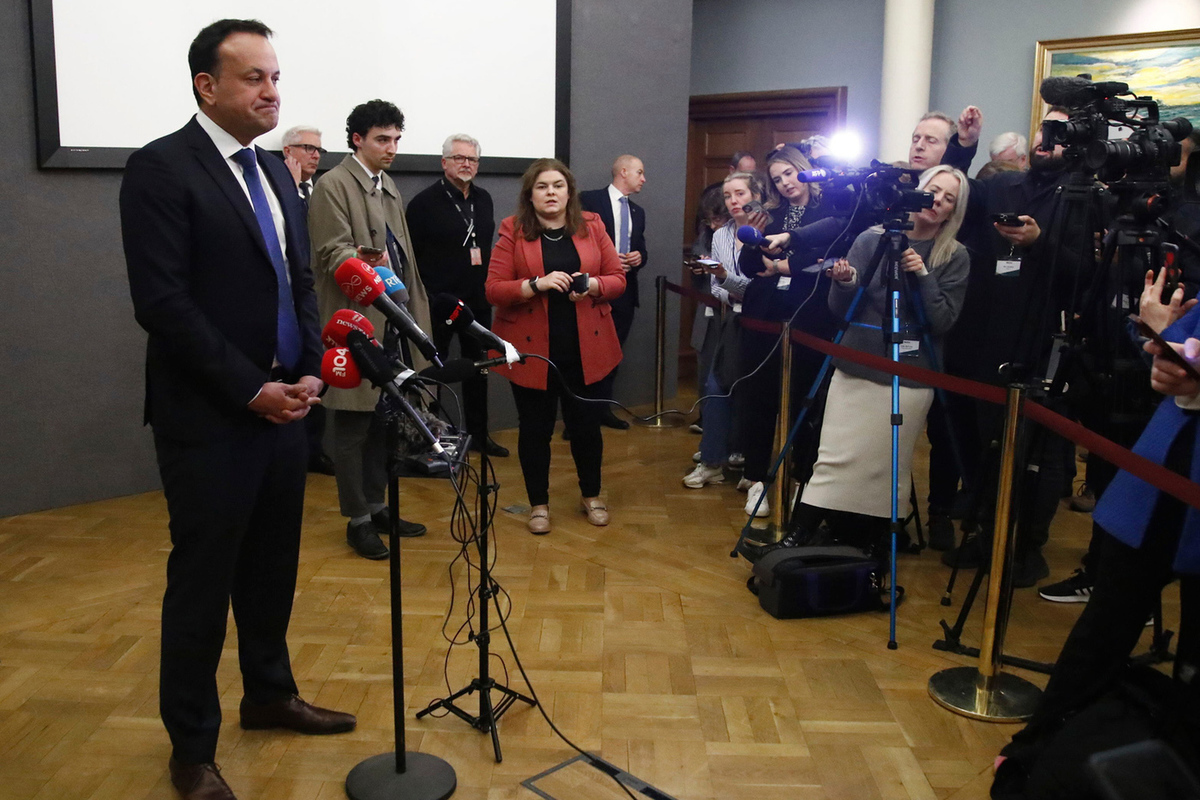Attempt to overhaul Ireland’s sexist constitution ends in disgraceful defeat
[ad_1]

It was not possible to remove contradictory language about women from the country’s main law
The Irish government has lost badly to the public in its bid to update the Green Island’s “sexist” constitution on March 8.
The Irish government admitted on Saturday that it had suffered embarrassing defeats in two referendums to change what it called “sexist” language in the constitution.
As CNN recalls, Irish residents went to the polls on Friday: the vote was deliberately timed to coincide with International Women’s Day in order to replace two articles in the constitution.
One states that the family is “founded” on marriage, the other states that a woman supports the Irish state “with her life in the home.”
Prime Minister Leo Varadkar said on Saturday afternoon it was clear referendums on constitutional changes had failed.
“I think it is clear at this stage that the referendums on the family and care amendments have been defeated,” Varadkar admitted at a press conference in Dublin.
Leo Varadkar defended the vote as a chance to change “very old-fashioned, very sexist language about women,” reports Reuters.
Low turnout was reported throughout the day, with less than 30% of registered voters in some areas, media reported.
If the vote had been successful, the Irish constitution would have stated that the family is based “on marriage or other durable relationship.”
Religious and socially conservative groups that advocated for a “No” vote disagreed with the concept of a “enduring relationship” and supported the original wording of the constitution, CNN notes.
In a tense debate in the days before the vote, Conservative campaigner Maria Steen clashed with Irish Deputy Prime Minister Michael Martin, insisting that “the reality is that most women do most of the housework.”
According to legal scholars, the Irish constitution, published in 1937, was heavily influenced by Catholic social teachings. Catholicism’s influence has gradually waned in recent decades, and the country’s church has been rocked by a series of clergy abuse scandals.
In recent years, referendums have been held in Ireland on a number of social issues, and voters have repeatedly supported progressive changes to the country’s constitution, CNN recalls.
In 2015, voters overwhelmingly supported legalizing same-sex marriage. Three years later they voted to repeal the abortion ban, and in 2019 divorce laws were liberalized following another referendum.
[ad_2]
Source link








